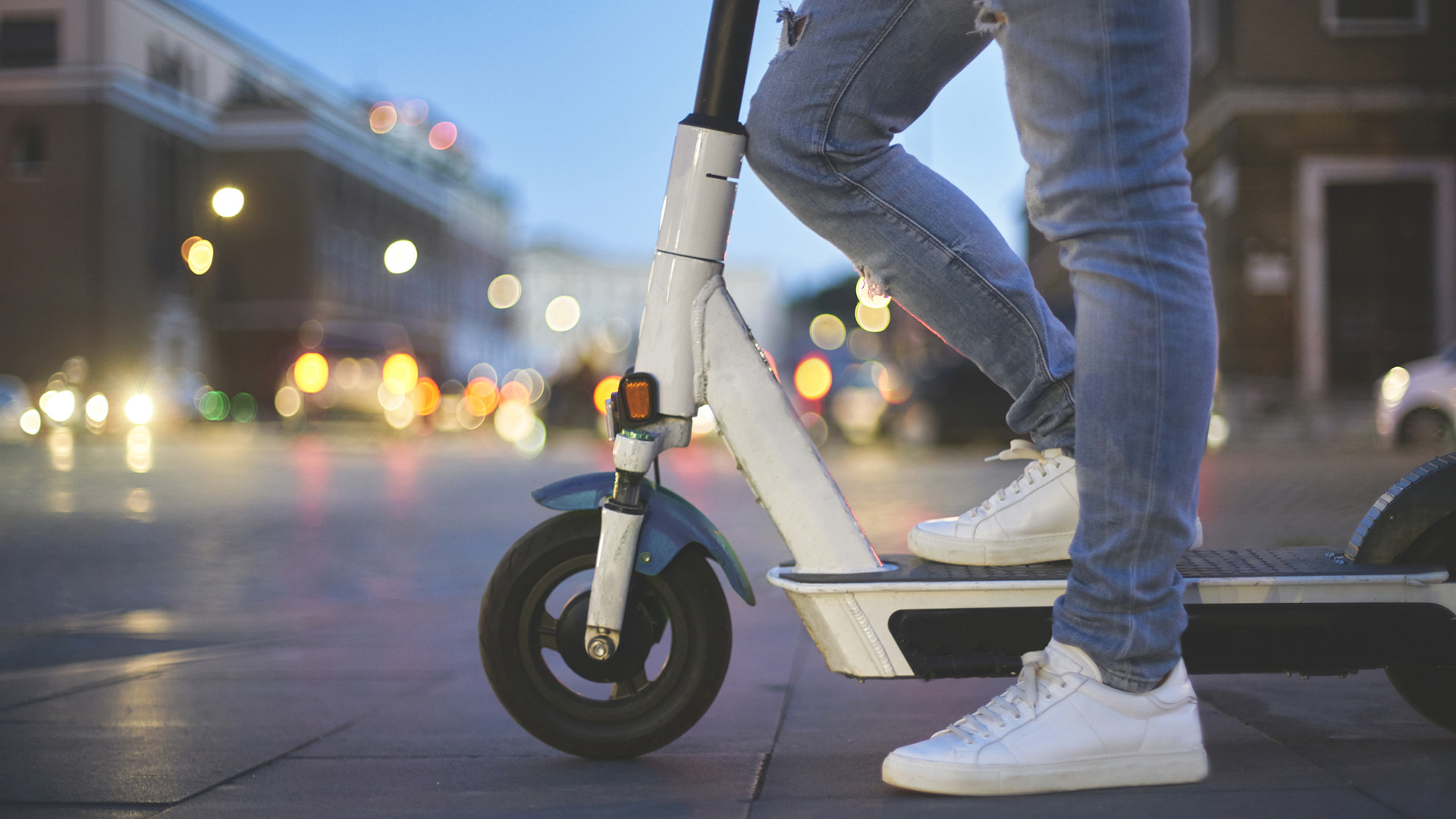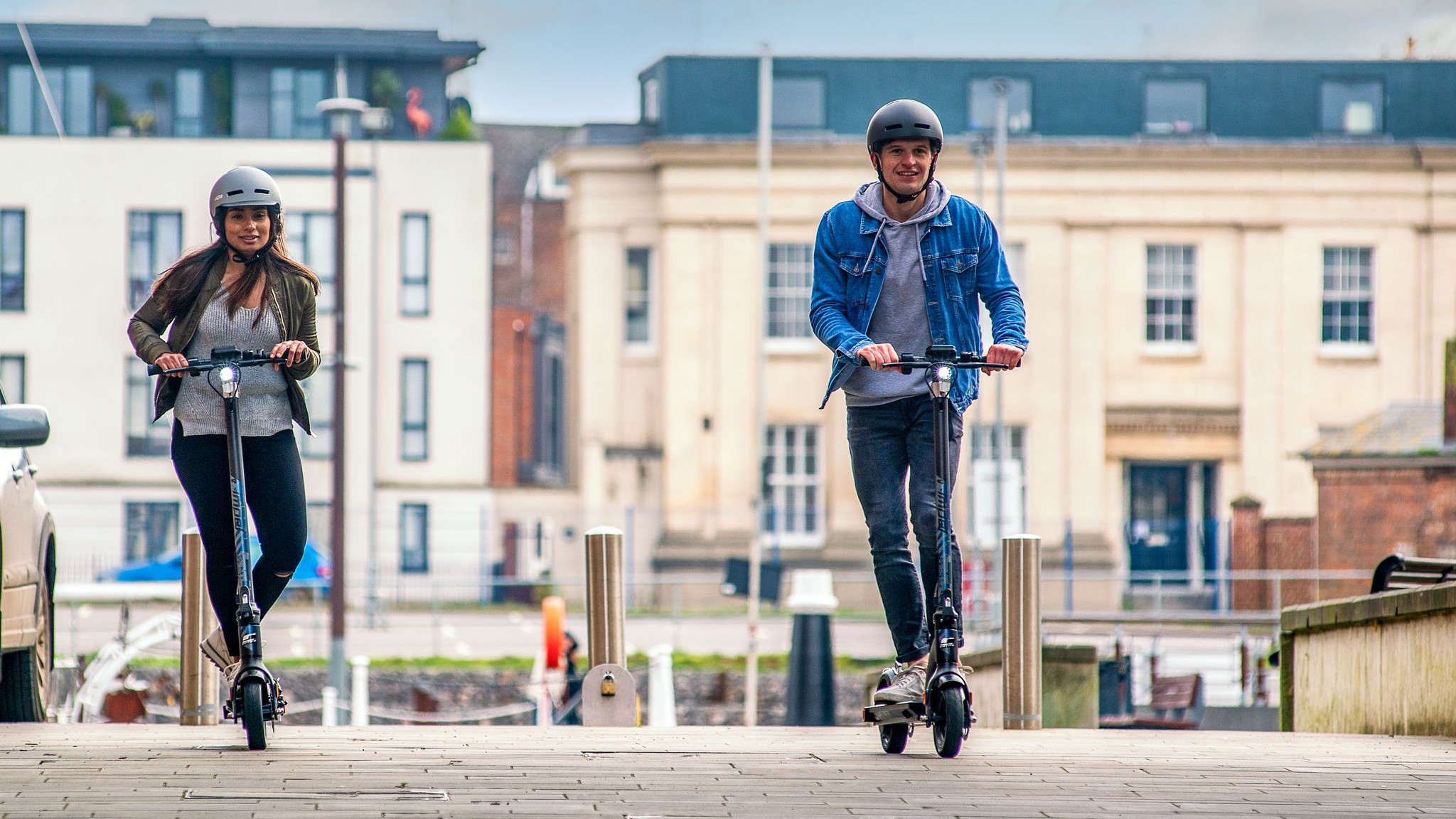Electric scooters are unlikely to remain illegal says UK lawyer
However a surprising number of people are not aware of the law around e-scooters as they currently stand


The electric scooter is one of the best ways to get around town. It's relatively low carbon, compact enough to reduce congestion, convenient for short journeys, and often foldable for storage when you reach your destination. There is just one small problem: in the UK, they are largely illegal although in America, their legal status is more favourable. You can find out more from these two handy guides.
• Are electric scooters legal in the UK?
• Are electric scooters legal in the US?
In Britain, there's something of a lack of information around the legal status of even the best electric scooters, but legal firm Bolt Burdon Kemp is trying to change that. They're currently drumming up business for their services – they offer legal representation to both e-scooter riders and pedestrians who have been in crashes and other difficulties – via a questionnaire designed to test your knowledge of electric scooter law. Give it a go; you might find it a bit of an eye-opener.
Bolt Burdon Kemp also has a variety of other articles on e-scooters, largely around the fact that they are currently not well regulated and, as noted, also not strictly speaking legal in most places, under most circumstances.
However Ben Pepper, an Associate at Bolt Burdon Kemp, thinks this is likely to change for the better, at least once the government get around to thinking about it properly.

Will e-scooters ever become road legal in the UK?
"It's unlikely that private e-scooters will remain illegal," says Ben. "They are too popular, and the environment benefits, such as reduced congestion and pollution, are difficult to argue with."
Get all the latest news, reviews, deals and buying guides on gorgeous tech, home and active products from the T3 experts
So what is the current law around e-scooters? Ben explains that they are currently legally considered to be more like a car than an electric bike, as mad as that may seem.
"E-scooters are classed as motor vehicles as defined by section 185 of the Road Traffic Act 1988. All motor vehicles must have tax, MOT, lights, number plates and other certain characteristics, but e-scooters don't meet these requirements. This means they can't be insured, and so the only legal place you can ride them is on private land with the permission of the owner."
As to whether scooters owners who break the law should face the full weight of the law, Ben has some sympathy. In several parts of the country, e-scooters are legal but only if they are part of an experimental on-street hire scheme.
"Although they’re perfectly legal to buy, they’re illegal to ride on public roads and many e-scooter owners are completely unaware they’re breaking the law. Getting caught can mean a sizeable fine and penalty points."
“Confusion arises as the rented e-scooters which are part of the nationwide trials can be ridden on public roads," continues Ben. "It’s easy to see why people struggle to understand where they are allowed to ride their privately-owned e-scooter. Without clear laws which deal with the use of e-scooters, their safety and their insurance coverage, both riders and pedestrians will be at risk."
So what needs to happen?
“Without proper e-scooter laws, we will continue to see real problems. It is vital that anyone who has a collision that involves an e-scooter has a clear route to compensation for their injuries and financial losses. The government should be providing better education on e-scooters safety risks and the laws on their use."
T3's view
We'd love to see a move towards legalisation of electric scooters, although this should also involve tighter regulation. At the moment, you can't even take an e-scooter on London transport, due to a faulty battery on one causing a fire in late 2021. Hopefully the various scooter hire schemes around the country will prove to be a success and pave the way for privately-owned electric scooters to be ridden, legally, safely and responsibly on the UK's roads and cycle lanes.

Duncan is the former lifestyle editor of T3 and has been writing about tech for almost 15 years. He has covered everything from smartphones to headphones, TV to AC and air fryers to the movies of James Bond and obscure anime. His current brief is everything to do with the home and kitchen, which is good because he is an excellent cook, if he says so himself. He also covers cycling and ebikes – like over-using italics, this is another passion of his. In his long and varied lifestyle-tech career he is one of the few people to have been a fitness editor despite being unfit and a cars editor for not one but two websites, despite being unable to drive. He also has about 400 vacuum cleaners, and is possibly the UK's leading expert on cordless vacuum cleaners, despite being decidedly messy. A cricket fan for over 30 years, he also recently become T3's cricket editor, writing about how to stream obscure T20 tournaments, and turning out some typically no-nonsense opinions on the world's top teams and players.
Before T3, Duncan was a music and film reviewer, worked for a magazine about gambling that employed a surprisingly large number of convicted criminals, and then a magazine called Bizarre that was essentially like a cross between Reddit and DeviantArt, before the invention of the internet. There was also a lengthy period where he essentially wrote all of T3 magazine every month for about 3 years.
A broadcaster, raconteur and public speaker, Duncan used to be on telly loads, but an unfortunate incident put a stop to that, so he now largely contents himself with telling people, "I used to be on the TV, you know."